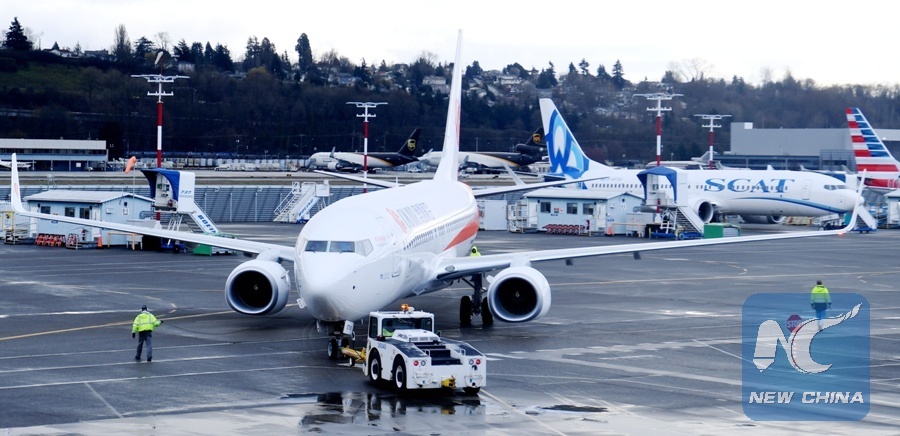
The 9999th Boeing737-800 aircraft prepares to take off from the company's Seattle airfield in the state of Washington, the United States, March 24, 2018. (Xinhua/Wu Xiaoling)
SAN FRANCISCO, April 4 (Xinhua) -- U.S. top aircraft manufacturer Boeing Company (Boeing) Wednesday expressed deep concern about the ongoing trade dispute between the U.S. and China, which is likely to escalate into a major trade war that will negatively impact the aerospace industry.
The tariff battle between the U.S. and China "could do harm to the global aerospace industry," Boeing said in a short statement released on Wednesday.
"We will continue in our own efforts to proactively engage both governments and build on the recent assurances by U.S. and Chinese leaders that productive talks are ongoing," it said.
In a tit-for-tat response to U.S. President Donald Trump administration's tariff hike on a list of about 1,300 Chinese exports worth about 50 billion U.S. dollars annually, China said it plans to impose a 25 percent tariff on 50 billion dollars worth of U.S. exports. The 106 affected American products will also include soybeans, chemicals and aircraft.
The Chinese tariffs threatened to be imposed on aircraft in a weight range would include some variants of Boeing's popular 737 jets, which are the fastest-selling airplanes in Boeing history.
Single-aisle planes, dominated by the 737 and Airbus' A320 family, are likely to account for three quarters of the global market over the next two decades, according to Boeing estimates.
With a worrying eye on the imminent prospect of a trade war, Boeing said in the statement that "a strong and vibrant aerospace industry is important to the economic prosperity and national security of both countries."
It said the company "is confident that dialogue continues" between the governments of the U.S. and China, the two largest economies in the world.

